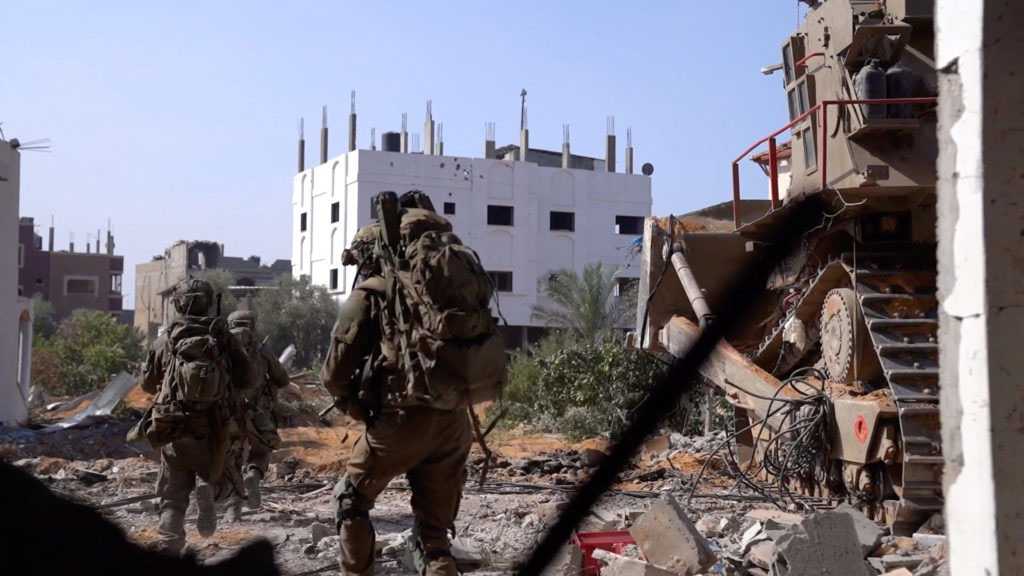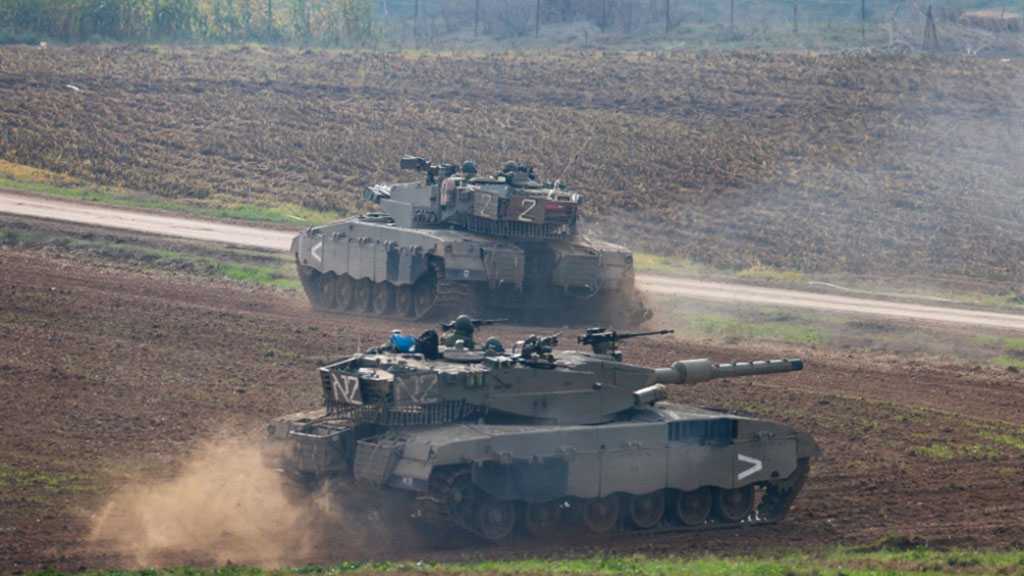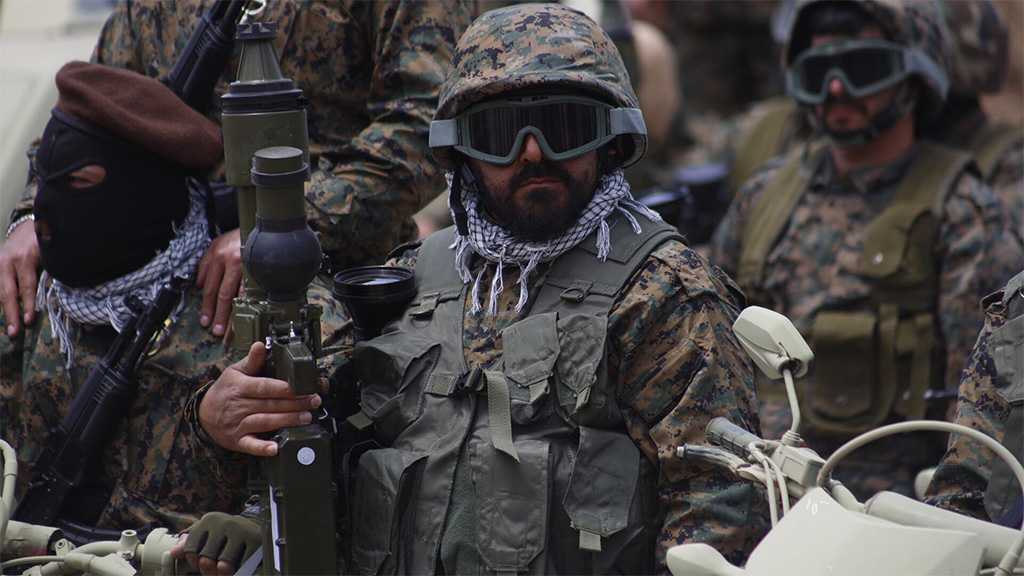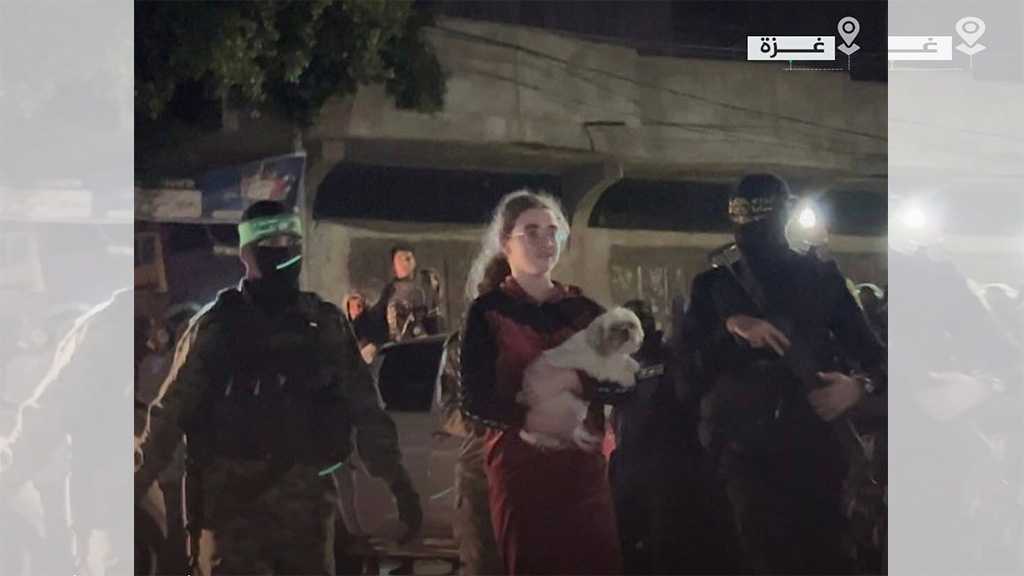
The Enemy’s Solution to a Predicament: Heading towards War!
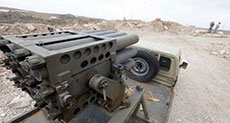
Ibrahim Al Amin
Complete silence. The most complicated war between ‘Israel' and Hizbullah is taking place during this period. It is not "a battle between the wars". It is a state of alert and readiness, amid fears over possible miscalculations or a rush towards something on the part of the enemy, which inevitably leads to a confrontation that no one can prevent from turning into a full-scale war. These are the possibilities, which are being enhanced with the passing of time combined with the failing projects of the West and its Arab and ‘Israeli' allies. But why now?
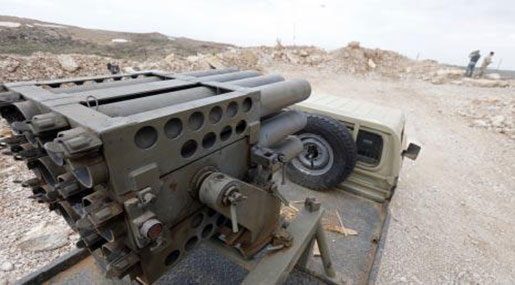
Since the cessation of military operations in August 2006, ‘Israel' had and still has enough reasons to launch a new war against the resistance in Lebanon. But the failure in the "second war" was accompanied by a decline in military readiness and a crisis of political confidence within ‘Israel.' A comprehensive evaluation of the war's outcome led to a conclusion that an exploration of better ways to confront the resistance was necessary.
All this led to calm on the military front. It is that calmness that the resistance exploited, hour after hour, rebuilding its capabilities - exceeding the expectations of the leadership - which forced the enemy to adopt a new strategy titled: hindering the growth of the resistance's capabilities. And whoever does not believe in the existence of conspiracies is not obliged to continue reading this article.
The failure to besiege the resistance after the assassination of Rafik Hariri and Syria's withdrawal from Lebanon as well as the failure of the [‘Israeli'] aggression in 2006, imposed on the enemy and its western and Arab allies the need to resort to more urgent options. They believed that these options would provide the same service and more. Thus, the work began to strengthen the anti-resistance current in Lebanon. In addition, other elements were added, fostering civil and internal political divisions in harmony with the sectarian strife triggered in Iraq and across the region, by the West and ‘Israel' in cooperation with Saudi Arabia and other countries. It was hoped that these options would not only trap Hizbullah but all the movements supporting the resistance. But what happened in the period between May 2008 and the toppling of the government of Saad Hariri in 2011, ended -without great damage- sedition in Lebanon, but kept a sharp political divide, becoming harsher after the outbreak of the Syrian crisis.
On the regional front, the extraordinary support provided by Saudi Arabia, along with Western intelligence agencies to the tools of sedition in Iraq, went a long way in transforming the country into a source of concern for pro-resistance states, especially Iran, Syria and Hizbullah. Concurrently, the US's containment process of Syria through the Turkey-Qatar route, in order to change the behaviour of the regimes and dismantle its alliance with Iran, was activated. There were genuine attempts to open gaps in the alliance between Iran and Syria through Iraq. The Turks, Qataris, and Saudis tried to persuade President Bashar al-Assad to support the United States' and Saudi Arabia's man, Iyad Allawi, to head the government instead of Nuri al-Maliki. In Lebanon, the peak of those efforts culminated in attempting to persuade Assad to support Saad Hariri's stay in office as the head of the Lebanese government in opposition to the will of Hizbullah.
As all of the aforementioned ended with failure, the foes of Iran, Syria, Hizbullah and the resistance resorted to another trick based on the exploitation of the popular anger against the ruling regimes in the Arab world. The civil protests in Syria were hijacked, quickly becoming part of a systematic operation to destroy the country, hoping to strike a blow to the Assad regime for its refusal to give in to Western pressure and its allies in the region. The internal strife in Syria and Iraq quickly turned into an element of stress for Iran and a major threat to the resistance in Lebanon. Especially that the forces of the plot succeeded, to a large extent, in inflicting a powerful blow on the resistance movement. For example, the "Muslim Brotherhood" was able to transfer the most prominent Palestinian resistance movement, namely Hamas, to the other side of the aisle, opposing the Iran-Syria-Hizbullah axis.
During the past five years, the West/'Israel'/Saudi Arabia/Turkey alliance employed almost everything to achieve this goal. Suddenly, all branches of the "Al Qaeda" organization became the center of attraction for Arab and Muslim youths. The option of extremism and madness was adopted to destroy many Arab countries, including Egypt, Libya, and Yemen. The central slogan that they raised in the Levant was always sowing sedition with the Shiites and Persians - in an attempt to break Iran, Iraq, Syria, and Hizbullah. Then came the "Daesh" version to coronate the image. Its emergence never would have happened if it weren't for the support of the United States and Europe in particular.
The strong belief among the enemy, accused of straining the resistance forces, was that the Syrian crisis spelled an end to the era of victories between 2000 and 2006. ‘Israel' firmly believed that taking Syria out of the resistance axis or destroying it with its army will close the doors to all the influence of the resistance and will cut the resistance chain in the middle. So, that it is why the enemy - in cooperation with Europe, Saudi Arabia, the United States and Turkey- is at the heart of the war on Syria. Everything the terrorist groups needed to prevent a stable state in Iraq, destroy the government and the state in Syria, and besiege the Resistance in Lebanon was provided. That task has been activated nearly six years ago. The update to this task was raising the level of Saudi Arabia's influence -as it launched a crazy war against Yemen in order to assert its control over the Arabian Sea and the Bab al-Mandab strait- as well as enlisting the support of the world's terrorists for the House of Saud in an on going battle to destroy that country and crush its people.
Unfavorable Results
The great damage that befell the structure of the state and society in Iraq, Syria, and Yemen cannot be taken lightly. But transferring these states to the side of the Saudi-‘Israeli'-American axis did not happen. On the contrary, some extraordinary developments took place in the past two years that led to containing this project and preventing it from expanding. After Russia joined the battle of preventing the fall of the East into the hands of the West, the axis of resistance moved on to the offensive stage.
It ended with a completely contrary result to that which the other side was expecting including:
• In Lebanon: The political and non-political results -during the past two years- led to the besieging of the terrorist groups, preventing the formation of a popular and political base for it in more than one Lebanese region. Cooperation between the army and the resistance in confronting the enemy expanded to include the Takfiri threat, forcing political forces and Lebanese security services linked to the West and Saudi Arabia to retreat and to join, if it had to, this battle.
• Also in Lebanon: The attempt to impose the March 14 movement's political project failed. The most prominent forces in it were prevented from taking control of the state, its infrastructure and institutions. Even though this group was able to find a presidential candidate who was supposed to be distant from it, the American-Saudi team was prevented from imposing all of its conditions. Also, the election of General Michel Aoun as president saw unprecedented support from Hizbullah, forcing the collapse of the March 14 forces in Lebanon as well as forcing some of the parties such as the "Future movement" and the "Lebanese Forces" as well as MP Walid Jounblat to adjust their behavior.
• In Iraq: Maliki's exit from power - because of his support for Iran - did not lead to big changes. However, the whole world had to cope with the "popular decision" which was backed by Iran, Syria, and Hizbullah, to launch the decisive battle against "Daesh". For those who do not remember, the Syrian air force, while it was occupied with chasing terrorists in Syria, dealt harsh blows to the groups of this terrorist organization during its expansion phase into Mosul and other provinces. Hizbullah, which allocated a portion of its capabilities in assisting the Syrian army, sent experts and staff to Iraq. Iran, for its part, took over the task of providing provisions to the popular mobilization units and supported its operations.
• Also in Iraq: The West was forced to change its policies. The fear of losing Syria and leaving it for Russia forced the United States, before others, to introduce fundamental changes to its policy. It had to engage in a battle to get rid of "Daesh" in Iraq. It was a battle Washington did not succeed in conducting according to plan. Today, we can talk about a new phase that the Iraqi arena will be witnessing in the near future. It will culminate in surrounding "Daesh" in the tightest places and the expulsion of the [terrorist] organization from the majority of Iraq's western regions, specifically from the border areas with Syria.
• In Iran: ‘Israel', Saudi Arabia, and many other capitals did not believe that it was possible to reach an understanding that was called the "nuclear agreement" that imposed on the West a new way to deal with Tehran and accept it as a central player in more than one regional arena. It was done without the imposition of any changes to Iran's foreign policy, particularly in terms of its continuous and open support for the resistance movements; the Assad regime in Syria, the popular mobilization units in Iraq, Ansarullah in Yemen, and Hizbullah in Lebanon.
• In Yemen: The West was gravely shocked by the failure of the Saudi war against the Ansarullah movement. After about two years, Riyadh looks like it is in a dark tunnel. It sought solutions that would minimize its losses. So it imposed civil wars on the southern parts of Yemen, flooding it with "Al Qaeda" groups. All this did not stop the expansion of Ansarullah's military influence inside Saudi territory, nor did it prevent all forms of support to this force by the resistance in the region. Despite a media blackout that is covering up the ongoing heinous crimes in Yemen, the world is approaching the moment when the rhythm of the Saudi madness will have to be "retuned."
• In Syria: Everyone was expecting a quick collapse of the state and the fall of the regime. However, ambitions to overthrow the regime and trying to force it to accept political concessions diminished. Within just two years, the branches of "Al Qaeda" took control over every militant group fighting against the regime. Despite global support - manpower, money, equipment, training and security intelligence - and the participation of all the countries in the world, the steadfastness of Assad and his army as well as the great part played by Russia, Iran and Hizbullah, significantly modified the realities on the political and military fronts. It is sufficient to review the military map published by the supporters of terrorism to realize the scope of the territory that the state recaptured on the one hand, and the scope of their opponent's collapse on the other, which stretches from the south to the capital and from the coast to the north. Turkey's current and necessary rotation is only the first sign of changes that will lead to one conclusion, which is the failure of the sedition project through the use of Takfiris. More than that, the silent world of diplomacy reveals signs of significant shifts in the western position, from the United States to France and European and Arab states. Something that will be reflected not only through the Syrian state and its government, but will also promote a course, still focused on confronting colonialism, and particularly ‘Israel.'
Confronting Hizbullah
If we go back to the direct confrontation with Hizbullah, we notice what is most important and what constitutes the most prominent source of concern for the enemy's leadership:
• Strenuous attempts by the enemy to modify the rules of engagement against the resistance along the border fronts have failed. The assassinations of resistance leaders and cadres forced Hizbullah's leadership to adopt a strategy of escalatory responses, reaching a point where it was ready to engage in an all-out confrontation. This is what forced the enemy not to engage in any direct military action on Lebanese territory, including positional operations.
• The enemy decided to move to the Syrian arena and exploit the crisis there in order to strike the capabilities of the resistance, after it quickly sensed that the entry of Hizbullah into the Syrian crisis opened the Lebanese-Syrian border and with it the Syrian army's weapons storage, granting Hizbullah access to various types of sophisticated and modern weapons, including arms transported from Iran.
• The enemy decided to launch raids against military convoys or presumed storages belonging to the resistance inside Syria. Yet what happened -whether announced or not- did not exceed an annual rate of five strikes since 2011. But the enemy knows that dozens, if not hundreds of convoys have been successful in delivering their payloads to the resistance's bases in Lebanon. Moreover, by raising the threat level against any action that leads to the death of the Mujahideen [resistance fighters] at the hands of the enemy, even in Syria, the resistance prompted ‘Israel' to review its calculations. It even reached a point when during one attack, warning shots were fired, as a way of telling members of the resistance to leave their vehicles. That particular convoy was later bombed but not before the proper precautions were taken to insure that no blood was spilt.
• Practically, when ‘Israel' looks at the scene today, it finds that Hizbullah's arsenal has grown hundreds of times larger, in terms of quantity, compared to 2006. The quality that the ‘Israelis' sought to prevent Hizbullah from attaining has also become available to the resistance's arsenal of weapons. These are the kind of weapons that ‘Israel' calls "game changing arms". Moreover, the enemy is watching how the activity of Hizbullah, previously confined to the fronts along the Lebanese border, is now present along the northern front of occupied Palestine. In addition to its newly acquired space to maneuver, which was not available in the past, Hezbollah has also gained exceptional experience from the war in Syria, even though that was not the intended purpose behind its intervention.
• A closer examination reveals that the West along with Saudi Arabia and ‘Israel' sensed that Hizbullah got out of the circle of concern in the Lebanese arena. It, rather, became part of the axis for all the Lebanese events. The war against the Takfiri currents provided the resistance with enormous experience in intelligence gathering, in addition to capabilities that were not available ten years ago. This was accompanied with the development of a resistance military intelligence apparatus, which lead to greater fear among the enemy.
• Today, the enemy senses Hizbullah's growing regional role after it has become a key player in Syria, Iraq, and Yemen, as well as a considerable influence in other parts of the Arab and Islamic worlds. Now, the party [Hizbullah] is in a position capable of influencing arenas that pose greater sensitivity to the other side with its Arab, ‘Israeli', and Western axis. All forms of sectarian strife did not disrupt Hizbullah's capabilities to cooperate with the forces of the resistance in Palestine, including the Izz el-Deen al-Qassam Brigades, Hamas' military wing.
Now, what do we do?
This is the central question asked by the military, security, and political leadership in ‘Israel'. The answers to this question requires a decision that surpasses the enemy's own government, as well as practical initiatives limited to very narrow options. We can say the ‘Israelis' have two options. It is not necessary to mention the first option. The other option includes a military adventure, but that will inevitably lead to a third war, which the enemy feels it is ready to fight. So, will the escape once again be towards an all-out war? In this context, it is better to draw the attention of friends and foes alike to ‘Israel's' continuous presentation of estimates concerning the size of the resistance's missile force. After every confrontation, the results are not favorable [to ‘Israel'].
During the July 2006 war, the resistance launched about 4,300 rockets at the Zionist entity over the course of 33 days. Today, the ‘Israelis' are talking about how Hizbullah will launch around 1,500 rockets per day. This is the enemy's estimate, which is inevitably wrong!
Source: Al-Akhbar Newspaper
